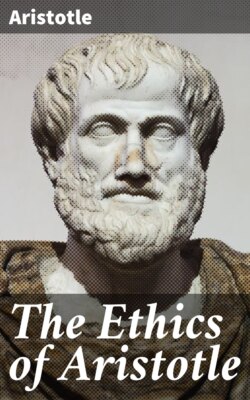Читать книгу The Ethics of Aristotle - Aristotle - Страница 11
На сайте Литреса книга снята с продажи.
XI
ОглавлениеNow that the fortunes of their descendants, and friends generally, contribute nothing towards forming the condition of the dead, is plainly a very heartless notion, and contrary to the current opinions.
But since things which befall are many, and differ in all kinds of ways, and some touch more nearly, others less, to go into minute particular distinctions would evidently be a long and endless task: and so it may suffice to speak generally and in outline.
If then, as of the misfortunes which happen to one's self, some have a certain weight and turn the balance of life, while others are, so to speak, lighter; so it is likewise with those which befall all our friends alike; if further, whether they whom each suffering befalls be alive or dead makes much more difference than in a tragedy the presupposing or actual perpetration of the various crimes and horrors, we must take into our account this difference also, and still more perhaps the doubt concerning the dead whether they really partake of any good or evil; it seems to result from all these considerations, that if anything does pierce the veil and reach them, be the same good or bad, it must be something trivial and small, either in itself or to them; or at least of such a magnitude or such a kind as neither to make happy them that are not so otherwise, nor to deprive of their blessedness them that are.
It is plain then that the good or ill fortunes of their friends do affect the dead somewhat: but in such kind and degree as neither to make the happy unhappy nor produce any other such effect.
